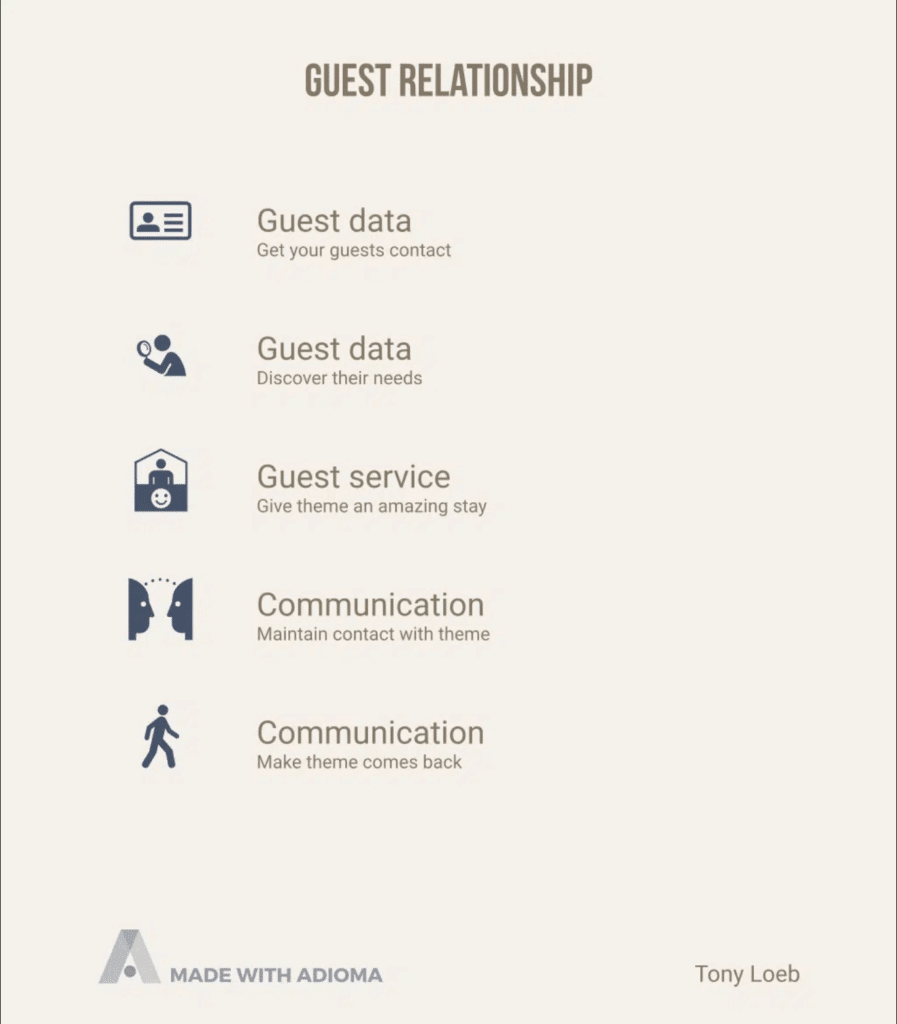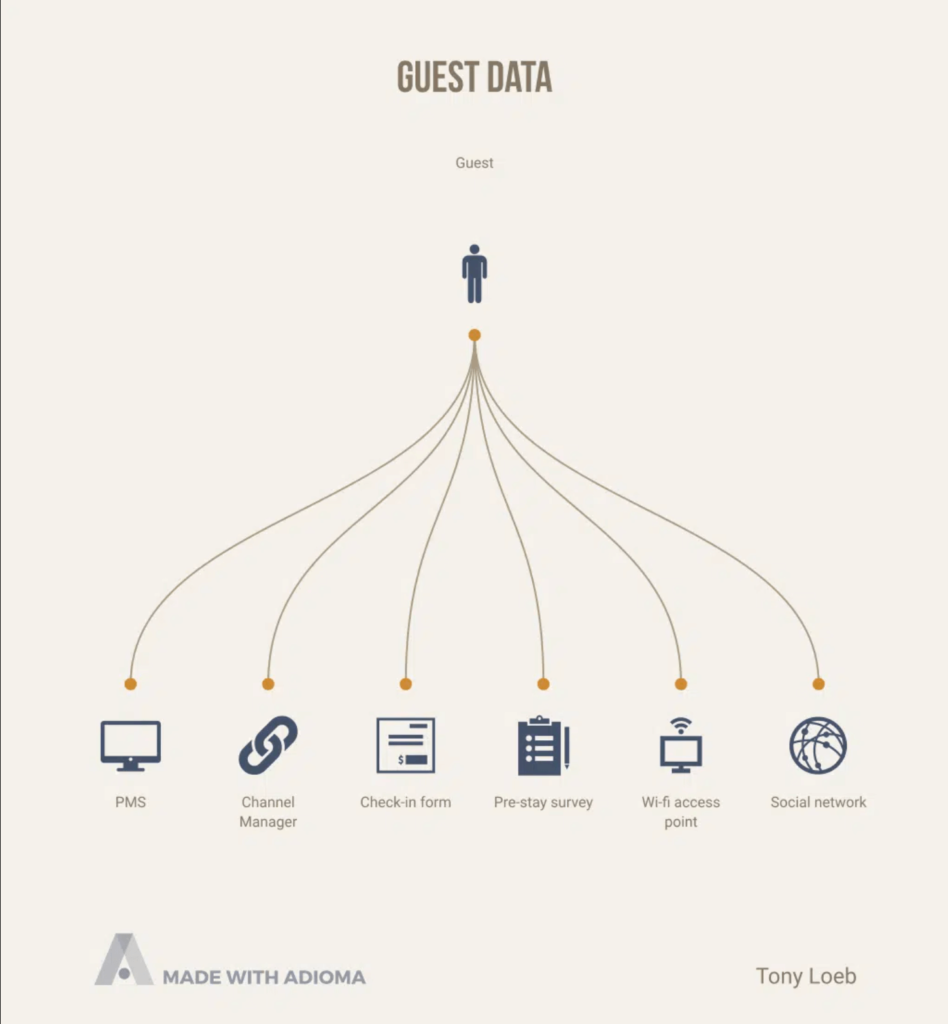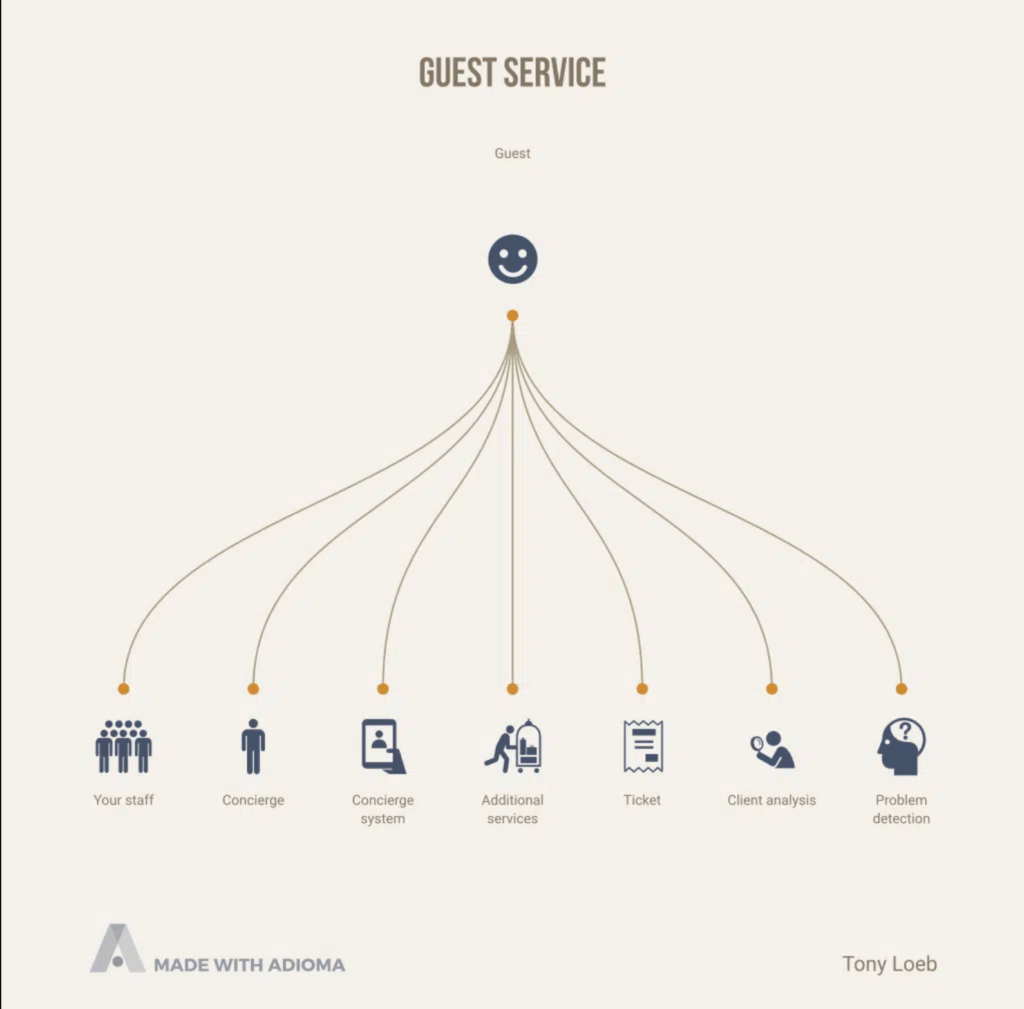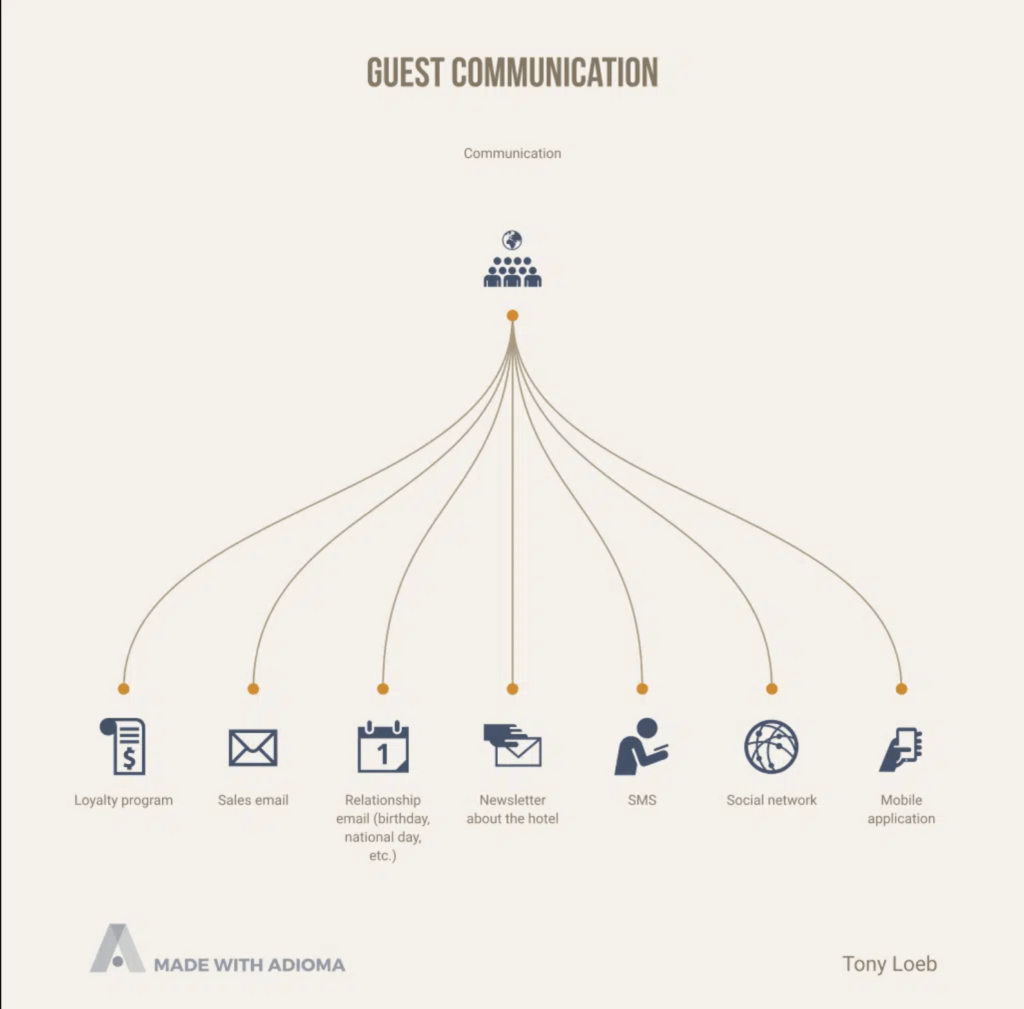More and more, we hear people talking about “guest relations,” “following the customer journey,” “Big Data,” “CRM,” and so on.
But what do all of these concepts mean and how should you respond? Do independent hoteliers necessarily need to address these subjects specifically? Is there a risk, however remote, for those who don’t do so? Today, it appears obvious that we are at the dawning of a new age in the hotel industry. We have experienced the rise of the web as a major commercial channel, followed by the domination of OTAs. Now, we are about to pass a new milestone.
Customer relationships
What does it involve?
When a subject is widely discussed in the media or by multiple people, it is very frequently the case that they reach agreement on several preconceived ideas. Here is the Wikipedia definition of “customer relationship” in the business world:
“Customer relationship management (CRM) is an approach to managing a company’s interaction with current and potential future customers that tries to analyze data about customers’ history with a company and to improve business relationships with customers, specifically focusing on customer retention and ultimately driving sales growth.“
When we talk about “customer relationships” we are therefore talking about identifying and understanding your guests so that you can optimize your service, resulting in an appreciable increase in guest loyalty. For all the widespread, lofty terminology that is so full of complexity, customer relationship management is actually a highly accessible concept.
Do you need to address it?
Thanks to our Experience Hotel solution and our developers, I have managed to uncover some interesting figures. This test was carried out with a sample of approximately 50 three and four-star hotels, spread across around ten major cities in France.
38% of travelers stated that they regularly traveled to one city in particular. However, just 9.5% of them returned to the same property.
So the difference is 28.5% of all guests! Around a third of all guests surveyed frequently returned to the same city, but selected a hotel other than the one they had previously stayed in.
What happened between the two stays? Why don’t guests return to the last hotel they booked?
The stranglehold of OTAs
In 2015, Booking.com set the tone by ceasing to share your guests’ e-mail addresses with you. Why did it make this decision? To prevent you from taking and keeping control of your guest relationships, thereby giving that control to the travel agent instead.
OTAs now have complete freedom to communicate with your guests as much as they like, in between stays for example. Worse, they are experts in this type of marketing. The result: your valuable and hard-won guests will choose their next hotel in your city depending on the “tips and highlighted properties” of the distribution platform where they originally booked your hotel.
More meddling: in 2014, Expedia launched its “Instant Check-In Review”. Your guests, while they are staying in your hotel, are surveyed on behalf of Expedia to find out if they’re happy with their stay. Your guests, therefore, have the option of expressing their dissatisfaction with any problems they encounter – therefore diverting them from talking to you and causing those to leave a bad review instead.
These practices, which are becoming increasingly widespread, will continue to grow – don’t doubt this for a second. We will progressively see all hotel chains and distribution channels taking over your relationship with your guests.
Another aspect, which is anything but benign, can be observed in the new booking options that are currently gaining traction in the market. As an example, Supertripper aims to be the “Netflix of the hotel industry.” The principle of the platform is very simple: you pay a monthly subscription, which allows you to stay in any hotel that has signed up for SuperTripper. The idea is interesting, but …
Hotels are in the process of being reduced to no more than four walls and a bed.
How can you fight back and what are the “customer relationship” tools?
In view of the future developments that are currently emerging, hoteliers urgently need to take back control of their relationships with their guests. This is not as complicated as it sounds, providing you recognize the scope of the issues. These can be divided into three main categories:
- Guest data: you need to obtain contact details for 100% of your guests if you want to maintain control of the relationship.
- Customer service: your guests must leave the hotel with smiles on their faces, convinced that they’ve gotten more than they paid for in the first instance. What have they gained? Human interaction and careful attention to each guest’s needs.
- Customer communications: your aim is now to make sure that 100% of your guests want to come back for another amazing stay in your hotel.
When you set out the three points above, you realize how simple and logical the topic really is (as is the entire concept of marketing when you approach it intelligently).
Here are some details of the various tools that are available to you to take charge of your guest relationships:

Customer data
This covers the tools to collect your guests’ key information: the contact details and segmentation data of your customer base.

Service
Once the information has been gathered, you make use of it to optimize your guests’ experience.

Communications
And, finally, maintaining constant, personalized communications with your guests is vital.
WARNING: This is a particularly sensitive topic. You do not want your guests to perceive you as a spammer under any circumstances. Therefore, it is important to ensure that your communications tools are closely linked with your guest data so that your messages can be highly personalized and accurate.

Conclusion
Today, there is no alternative to digitizing your relationships with your guests. However, it has become vital to retake control of your relationship with your guests to prevent big chains or resellers from doing so instead.
The good news: it really isn’t so complicated! Start by deciding to take back control. Then, rest assured that there are many high-quality tools on the market to support you: you simply have to choose the right one to meet your needs.
Remember that a company’s single greatest cost is often customer acquisition. If you generate a return on this cost, by staying in touch with your customer base and building loyalty, you’ll increase your profitability significantly.


